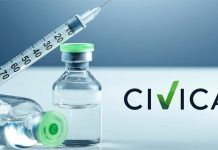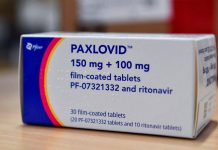The U.S. Food and Drug Administration (FDA) has announced the approval of a generic drug, developed in Israel, for the treatment of ovarian cancer, multiple myeloma, and Kaposi’s Sarcoma, according to The Jerusalem Post.
A drug called Doxorubicin-HCI Liposomal Injection, which is developed by Jerusalem-based pharma company Ayana, will now be available in the U.S. market. The company focuses on the development of Liposomal Therapeutics for the treatment of cancer.
Doxorubicin-HCI Liposomal Injection is a modified chemotherapy treatment that targets cancer cells directly, thereby reducing side effects, per the news outlet.
Prof. Yechezkel Barenholz of the Hebrew University of Jerusalem developed the drug. He is also the inventor of Doxil (doxorubicin), a cytotoxic or chemotherapy drug.
The drug is encapsulated in a closed lipid sphere called a liposome, which can be imagined as a small “ball” the size of a virus, explained Prof. Barenholz.
“We load the toxic agent into these balls and infuse them into a patient’s bloodstream once a month,” the professor said. “These nano-Liposome balls travel through the bloodstream until they reach the cancer tissue and there, through tiny pores in the blood vessels, exit the bloodstream and accumulate in the cancer tissue.”
Prof. Barenholz explained, “Unlike healthy cells, cancer cells produce ammonia, and this ammonia releases the active toxic agent [doxorubicin] out of the nano-liposomes balls in proximity to the cancer cells, leading to the cancer cells’ death.”
The novel therapy solves one of chemo’s biggest challenges – side effects. The therapy reduces the risk of side effects such as hair loss, gastrointestinal disturbances, and other adverse effects.
Ayana Executive Chairman Gal Cohen said, “When a patient does not suffer from so many side effects, the compliance rate is much better and it is much easier to treat the patient.”
Cohen led the team to obtain the FDA’s approval and for commercial launch.
Ayana is a small pharmaceutical company, but Cohen said it is working on other products using nanotechnology to treat cancers. He said, “We believe that it is cutting edge technology and that many people could benefit from treatment through this delivery system.”























